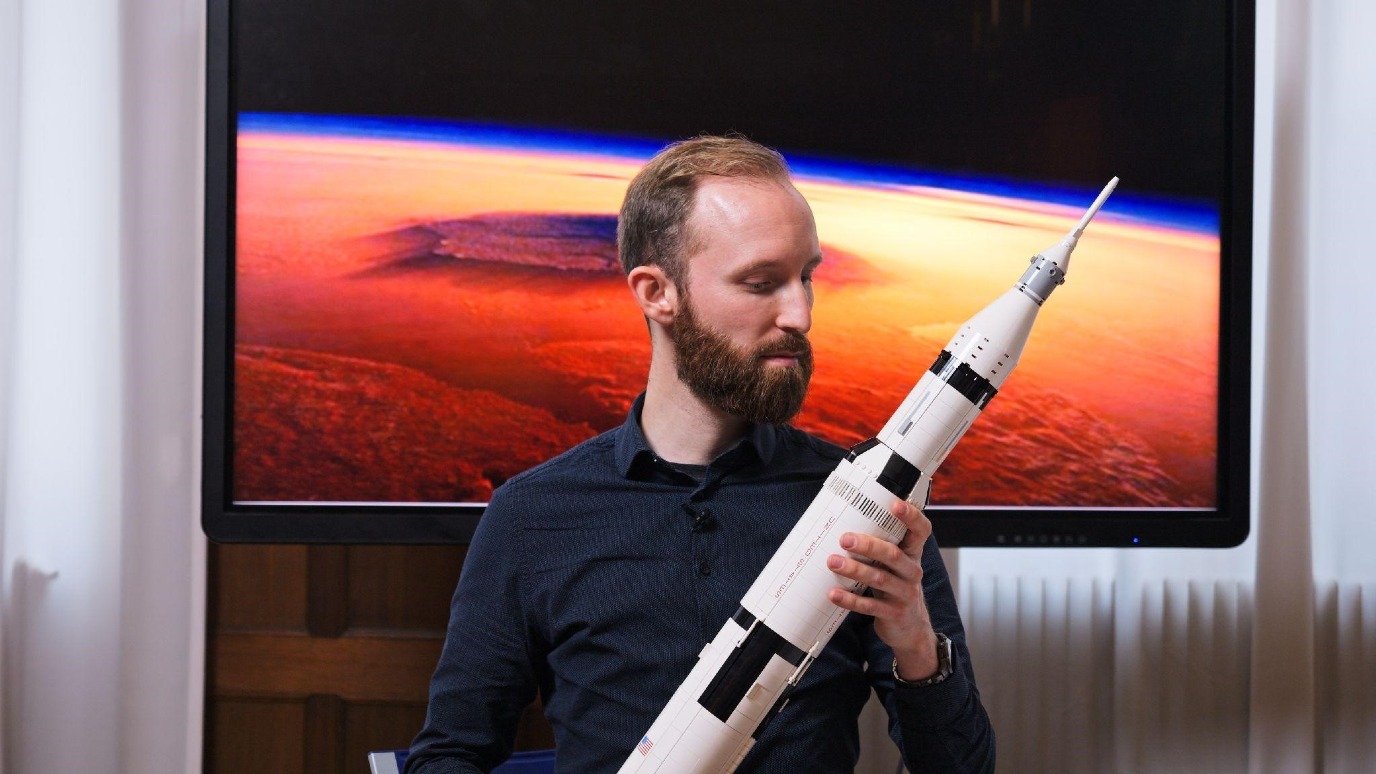The UG nominates two academics for the Klokhuis Science Prize
This year, the Pre-University Academy of the UG submitted two studies for the national Klokhuis Science Prize. This prize is intended to introduce a young and broad audience to academic research. A Klokhuis Science Special will be made about the winning research study. The Prize will be presented on Sunday, 17 March 2024 in Nijmegen during the InScience International Science Film Festival.
Mathematician Julian Koellermeier and orthopedagogue Steffie van der Steen are among the nominees for the Klokhuis Science Prize this year. Below, they tell us more about their research.
Therapy with a real dog or a robot dog?

Steffie van der Steen on therapy dogs: ‘Therapy with animals is becoming increasingly popular, for example for children with Down syndrome or autism, but how does this work exactly? In my research, I’m comparing therapy with a real dog with a condition in which the same therapy is given but with a robot dog. The robot dog responds to children’s voices and actions and can follow simple commands, but is otherwise limited in its responses. As a result, children may be less able to interact with the robot dog and transfer their learnings to everyday life. However, the first results show that the outcomes differ per child. The social skills of some children do seem to improve after therapy with a robot dog, while other children benefit more from a real dog.’
On a journey to Mars with mathematics

Julian Koellermeier explains: ‘The future of humanity is multi-planetary and Mars will be the first planet that humans will be able to colonize. However, to safely enter the atmosphere and land on Mars, a spacecraft must be able to slow down from very high speeds of up to many kilometers per second to a near standstill in a very short space of time. To design spaceships that can land safely, we need to run simulations before actually leaving for Mars. This can be done with mathematical simulations of the atmospheric flight through the different layers of the Martian atmosphere. The mathematical models require a balance between accuracy and computational complexity. My research is aimed at accelerating mathematical simulations with guaranteed accuracy during the entire entry flight, so that in the future more efficient and safer Mars missions can be scheduled.’
More news
-
03 February 2026
‘Such willpower’
-
29 January 2026
Microplastic research - media hype or real danger?
